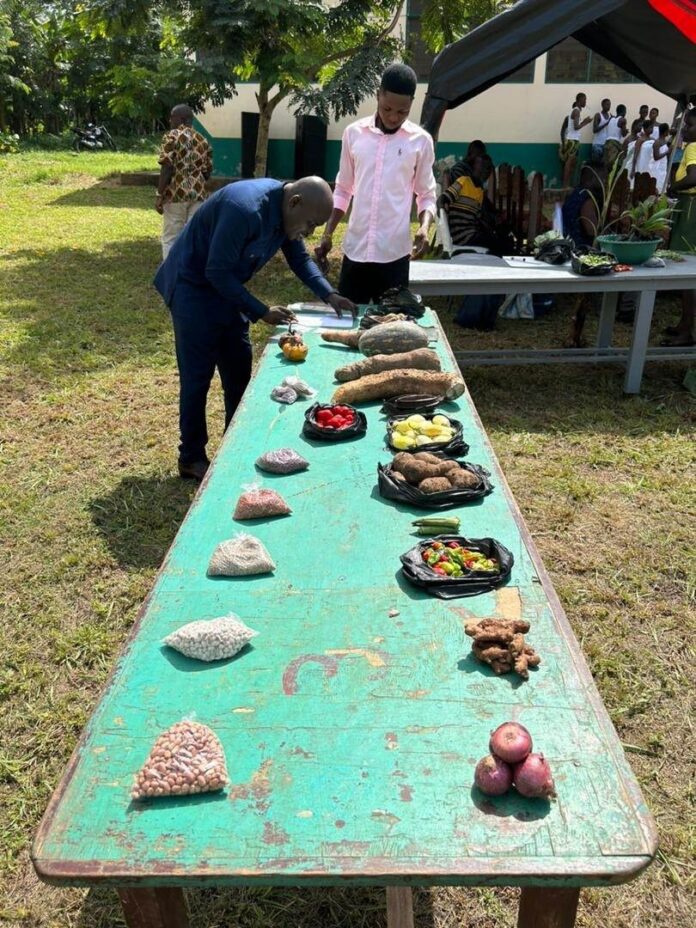In Africa, particularly in Ghana, the conservation and utilization of neglected and underutilized species (NUS) have been integral to local food systems for centuries. These lesser-known crops play crucial roles in food, nutrition, medicine, and income generation. However, the sustainability of NUS is under threat due to various factors such as population growth, changes in agricultural practices, and limited support in research and policy. The Adawso Pilot Community Seed Bank, a collaborative initiative, seeks to address these challenges and promote the sustainable conservation and utilization of NUS.
Community Seed Banks:
The concept of a community seed bank serves as a beacon for harnessing and protecting crop diversity at the grassroots level. By empowering farmers and local communities to regain control over their seeds, these seed banks strengthen cooperation among farmers and other stakeholders involved in the conservation of agricultural biodiversity. The Adawso initiative utilizes the Farmer-Based Association (FBA) managed community seed/field bank approach, placing control and management in the hands of the community, ensuring improved access to planting materials.
Mangoase Pilot Project:
The Mangoase community in Adawso, known for its rich diversity of root and tuber crops, cereals, legumes, fruit trees, and vegetables, became the site for the pilot project. The Nyonkopa farmer group, consisting of 120 members, actively participates in the project, with 83 men and 37 women contributing to the vibrant agricultural community.
Crop Diversity in Mangoase:
Farmers in Mangoase cultivate over 30 crop and tree species, showcasing a diverse range of vegetatively propagated crops, traditional and modern vegetables, and various tree crops. Despite the richness of crop varieties, the diversity is diminishing, primarily affecting crops like bananas and plantains, cassava, taro, and yam. Farmers attribute this decline to factors such as a lack of economic incentives, inadequate planting materials, delayed maturity, poor crop management, and limited knowledge about certain crops.
New Facility and Activities:
Collaboration among key stakeholders, including the NUS Network of Ghana, Alliance of Bioversity International and CIAT, District MoFA office, Agricultural Extension Service, and scientific institutions, aims to build farmers’ capacity in establishing and managing the community seed bank. The involvement of organizations like CSIR-PGRRI, BNARI, and UENR further enhances the project’s scientific and educational dimensions.
Sustainable Practices and Value Addition:
To ensure the longevity of the community seed bank, efforts will be made to explore value-addition activities for local crops. This includes enhancing the socio-economic recognition and economic value of NUS, thereby contributing to improved nutrition, health, income generation, conservation, and sustainable livelihoods within the community.
Dissemination and Future Collaboration:
The success and experiences gained from the Mangoase pilot project are envisioned to be disseminated to other regions of Ghana through collaboration with national institutions, universities, and other stakeholders in the seed sector. The ultimate goal is to create a ripple effect, fostering sustainable conservation and utilization practices across the country.
Conclusion: The Adawso Pilot Community Seed Bank stands as a beacon of hope in the face of diminishing crop diversity and the challenges faced by neglected and underutilized species in Ghana. By empowering local communities and fostering collaboration among diverse stakeholders, this initiative paves the way for a more resilient and sustainable agricultural landscape, ensuring the continued well-being of both farmers and the environment.
















 The African Research (AR) Index is a comprehensive scholarly directory and database focused explicitly on journal publishers that publish and disseminate African research.
The African Research (AR) Index is a comprehensive scholarly directory and database focused explicitly on journal publishers that publish and disseminate African research.

